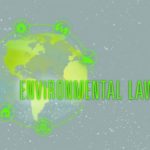Environmental harm can come from a variety of hazardous substances and through a range of circumstances.
Environmental harm can cover a number of situations, from the pollution of the air or water in a particular area to noise nuisance or trespassing caused by a third party.
The action that could be taken by an individual would depend largely upon the circumstances and the nature of the environmental harm.
If the environmental harm entails environmental contamination, such as water or air pollution, then a citizen’s suit my be filed by an individual under federal environmental statutes.
This suit would be brought to prohibit the source responsible for the cause of the pollution from continuing to pollute the water or air.
It may be that action is already being taken against the polluter by the government, in which case you would not need to file a citizen’s suit.
The type of action that can be taken by an individual would also depend upon the extent of harm or damage caused by the environmental pollution.
If the pollution had not only affected the area in general but had also caused personal damage or harm to the individual or his property, the individual can also file a lawsuit for compensation for the damage or injury caused by the perpetrator.
This lawsuit would be filed in accordance with state common law regulations.
There are a number of ways in which an individual may experience harm, injury or damage from environmental violations, and would therefore be entitled to file a lawsuit in accordance with state common law for compensation against the harm and damages.
One of the reasons that may warrant a lawsuit for damages could be nuisance. If a third party mars your enjoyment of your own property through their actions, such as through noise, rubbish, etc. you could file for damages.
Trespassing is another form of harm for which you could file a damages lawsuit under state common law, and this is if a third party invades or contaminates your home through their actions.
However, damages for this type of action are usually calculated in terms of the cost required to clean up your property and return it to its former state prior to the contamination.
Other action that can be pursued through state common law includes that for negligence and strict liability.
Strict liability is where a third party may be held responsible for the use of a hazardous substance that has contaminated your property in any way, even if this contamination was unintentional.
With negligence, a third party can be sued for causing contamination through their actions or apathy.
If you feel that you have cause to lodge either a citizen’s suit or a common law suit for environmental harm and contamination, you should contact an environmental lawyer for advice as soon as possible.
There may be limitations on the time you have to pursue your case, known as statutes of limitation, and it is therefore essential that you take action quickly in order to purse your case successfully.






